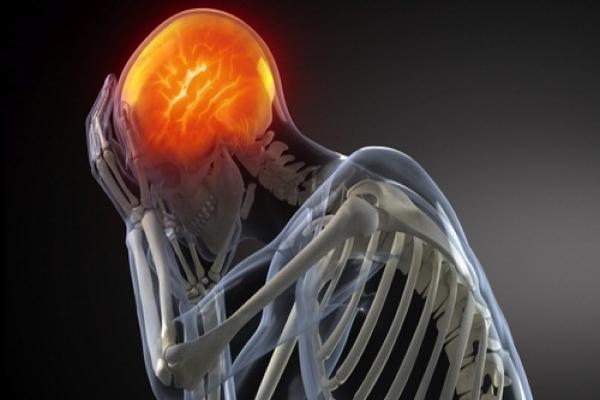Published on the 25/05/2016 | Written by Donovan Jackson

It’s perhaps the ultimate integration: connect your brain directly to the cloud…
It sounds like the stuff of science fiction, until you look around yourself today and realise that not even the wildest flights of SF fantasy could have foreseen the world as it is now. Direct integration of your brain to the cloud could be a reality within as little as two decades, delivering the ultimate in augmented intelligence and extending your grey matter far beyond the limitations of a small skull. But just where does this particular brand of crazy come from? That would be Ray Kurzweil, noted futurist, entrepreneur, collector of honorary doctorates (he has in the region of 20 of them, at last count) and author. Appearing as the keynote speaker at Tibco’s recently concluded partner/customer conference which took place in Las Vegas, the avuncular, genial and downright funny Kurzweil told the audience that soon, “We will connect our neocortexes directly to the cloud.” Before getting on to the how, let’s consider the why. We’ll want to do that, he explained, because of the physical limitations of our heads and the dimensions of the hips through which they have to pass at birth. While we’ve evolved plenty of additional brainpower in the neocortex (which means ‘new rind’; the neocortex is, evolutionally-speaking, a relatively new development), functioning in today’s crazy world demands ever more. “We will connect our neocortexes directly to the cloud.” Does it? Certainly. Augmented intelligence, as a concept, surrounds us today. We use computers, smartphones, tablets, even wristwatches, as tools to help remember things, find our way, do calculations and much more. The user interfaces, which have undoubtedly come a long way, are still clunky, but getting better by the day. Just recently, for example, Siri popped onto the scene, and on that Kurzweil had a good quip: “The funny thing with a lot of technology is that it sneaks up on us. We go from saying ‘oh, that Siri doesn’t work’ when it’s introduced. Some time later, when it performs flawlessly, we say ‘oh, that’s no big deal, it’s been around for ages’.” We’ve said that not even science fiction could anticipate today’s world and that is perhaps true. But someone could: Ray Kurzweil. Check out his list of prognostications, many of which have come to pass. “One thing about the future is that it is amazingly predictable,” he told the conference. Central to those predictions is something we all know as Moore’s Law. “The price, performance and capacity of IT is exponential, not linear, and predictably so. Small numbers quickly get very big with the exponential curve, which is why today we have price and performance in handheld devices which is several billion times better than the best available just decades ago.” Waving his iPhone around, Kurzweil confidently predicted that in 25 years’ time, it would be hundreds of thousands of times smaller, while again massively more powerful – consistent with his Law of Accelerating Returns, which goes beyond computers and extends to exponential growth in diverse forms of technological disciplines. Among those disciplines is biotechnology; already, he noted, 3D organs can be printed and there are plenty of examples of other weird and wonderful advances; combined with these developments, a vanishingly small ‘iPhone’ could be introduced into the bloodstream and assigned to the brain. You see where this is going. Using these nanocomputers, “We’ll connect our neocortexes to the cloud as an extension of our brains. That will result in a synthetic neocortex which combines computing and the brain, just like smartphones today wirelessly and seamlessly access additional computing in the cloud as and when required.” Kurzweil has a theory of the mind that states we have some 300 million ‘modules’ which facilitate thinking. Integrate with the cloud, and you’ll enjoy access to billions of modules. “This isn’t an alien invasion to replace or compete with us; it is to extend your reach. This will literally expand our intelligence,” Kurzweil said – and certainly, accelerate the drive towards the technological singularity. On the scary/exciting scale, that’s probably a 9 out of 10; getting your head wirelessly connected to the cloud is also likely to throw up an integration challenge right up Tibco’s alley: coming soon to a brain near you, the mind/machine API. … From access to action… Guiding your modernisation journey… Our 2020 future looms and for ERP vendors that means staying true to the promises upon promises that they have made to keep relevant. Are they on track for lift-off?… Digital builds momentum for FMCG drinks brand machine… iStart’s latest release of the ERP Buyer’s Guide shows that it’s cloud or nothing for ERP vendors, but in a hybrid world is purer better?…
FURTHER READING

Identity security key to government efficiency and integrity

Taking the ski jump to DevOps and cloud success

Where to now for innovation in ERP?

Switched on CIO: Pieter Bakker juices up DX at Frucor

Midmarket ERP a race to the cloud



























